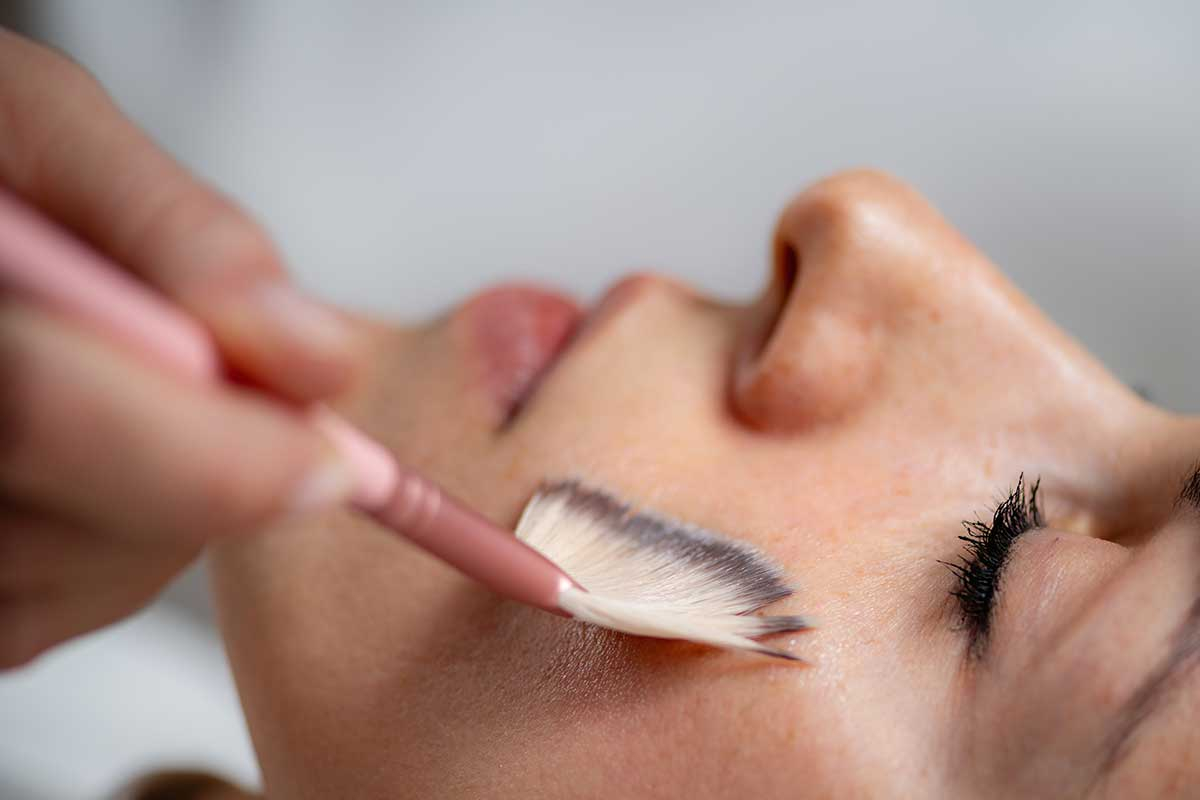
Chemical Peel
Watch our video about Chemical Peel
A Chemical Peel is a skin treatment used to improve the texture and appearance of the skin by applying a chemical solution that exfoliates the outer layers. This process stimulates new skin growth, resulting in smoother, more radiant skin. Chemical peels are commonly used to treat a variety of skin concerns, such as acne scars, wrinkles, hyperpigmentation, sun damage, and uneven skin tone.
During the procedure, the chemical solution is applied to the skin, causing controlled damage to the surface layer. As the skin heals, it peels off, revealing fresher, healthier skin beneath. Chemical peels vary in strength and depth, allowing for customized treatment based on the patient’s skin type and specific concerns.
Types of Chemical Peels
Superficial Peels
Superficial Peels, also known as light peels, are the mildest type of chemical peel. These peels use a gentle acid, such as alpha hydroxy acid (AHA) or beta hydroxy acid (BHA), to exfoliate only the outermost layer of skin. Superficial peels are ideal for individuals looking to improve minor skin imperfections like fine lines, mild acne, or uneven skin tone. They are also suitable for people with sensitive skin who want a quick, rejuvenating treatment with minimal downtime.
Results from superficial peels are gradual, and multiple sessions may be required for optimal results. Since the peel only affects the top layer of skin, recovery time is short, and patients can usually return to their daily activities immediately. The effects are subtle, providing a refreshed look to the skin over time.
Medium Peels
Medium Peels penetrate deeper into the skin, reaching the middle layers to treat more significant skin issues such as moderate wrinkles, sun damage, and acne scars. These peels often use stronger acids like trichloroacetic acid (TCA). Medium peels provide more dramatic results than superficial peels and are ideal for individuals looking to address more noticeable signs of aging or skin damage.
Because medium peels affect deeper layers of the skin, the recovery period is longer, usually around one to two weeks. Patients may experience redness, peeling, and some discomfort during the healing process, but the results are more pronounced, with smoother, brighter skin becoming visible as the skin regenerates.
Advantages of Chemical Peels
Chemical peels offer numerous benefits, including:
- Improved skin texture and tone: Chemical peels effectively smooth out rough skin, reduce the appearance of fine lines, and even out skin tone, giving the skin a youthful glow.
- Treatment of skin concerns: Peels can address a range of skin issues, including acne, scars, hyperpigmentation, sun damage, and age spots, making them a versatile solution for various conditions.
- Quick and efficient: Most chemical peels are performed in under an hour, with superficial peels requiring minimal recovery time, allowing patients to quickly return to their routine.
The procedure time varies from 30 minutes to one hour, depending on the depth of the peel, and patients can enjoy long-lasting results with proper post-procedure care.
Frequently Asked Questions (FAQ)
1. How often should I get a chemical peel?
The frequency depends on the type of peel. Superficial peels can be done every few weeks, while medium peels are usually recommended every 6 to 12 months. Your healthcare provider will recommend the best schedule based on your skin type and goals.
2. Is a chemical peel painful?
Superficial peels cause minimal discomfort, often described as a tingling sensation. Medium peels may cause more stinging and discomfort, but the sensation is temporary and manageable.
3. What can I expect after a chemical peel?
After a superficial peel, the skin may be slightly red and flaky for a few days. Medium peels involve more significant peeling and redness that can last for a week or more. Your provider will give you specific aftercare instructions to promote healing.
Chemical Peel Services at Clinic Consultation
At Clinic Consultation, we offer a variety of chemical peels tailored to your unique skin concerns and goals. Whether you're looking to refresh your skin with a superficial peel or address deeper issues with a medium peel, our skilled team ensures safe and effective treatment.
Book an appointment today at Clinic Consultation to rejuvenate your skin with our customized chemical peel services.
Click the button below to schedule your appointment online.